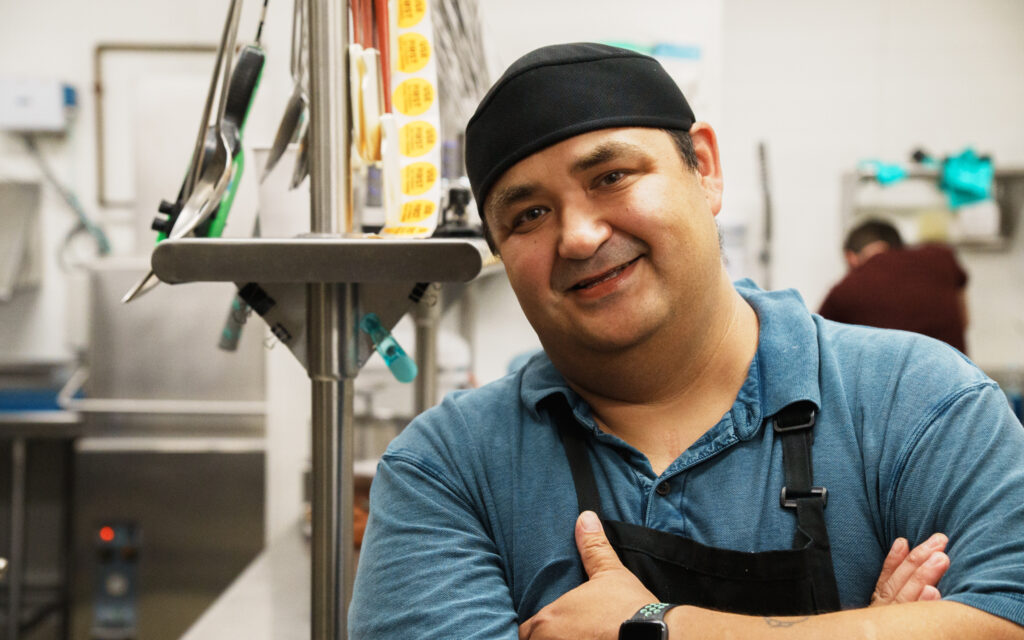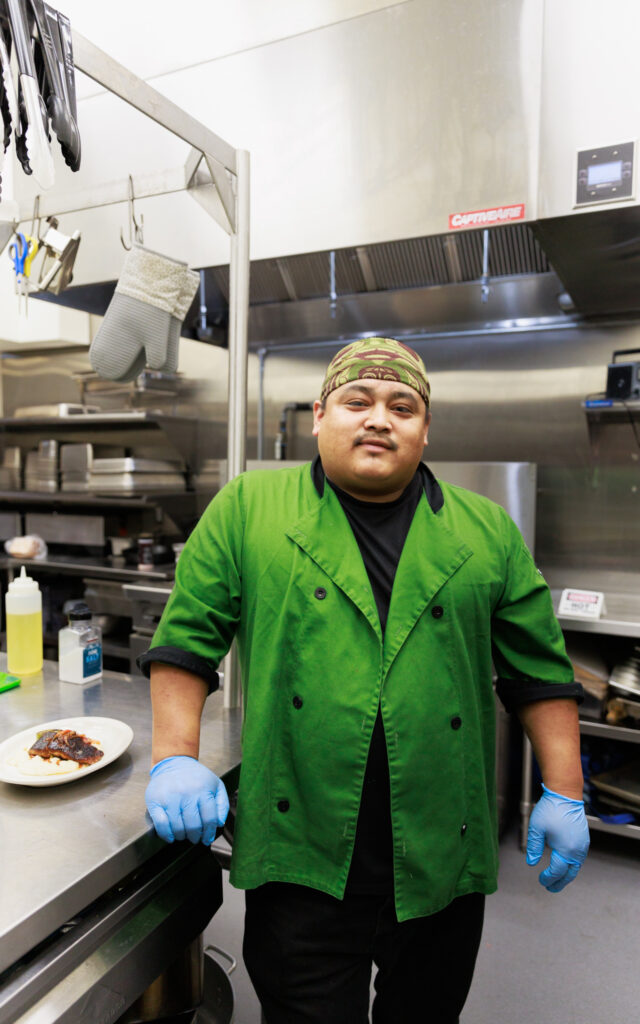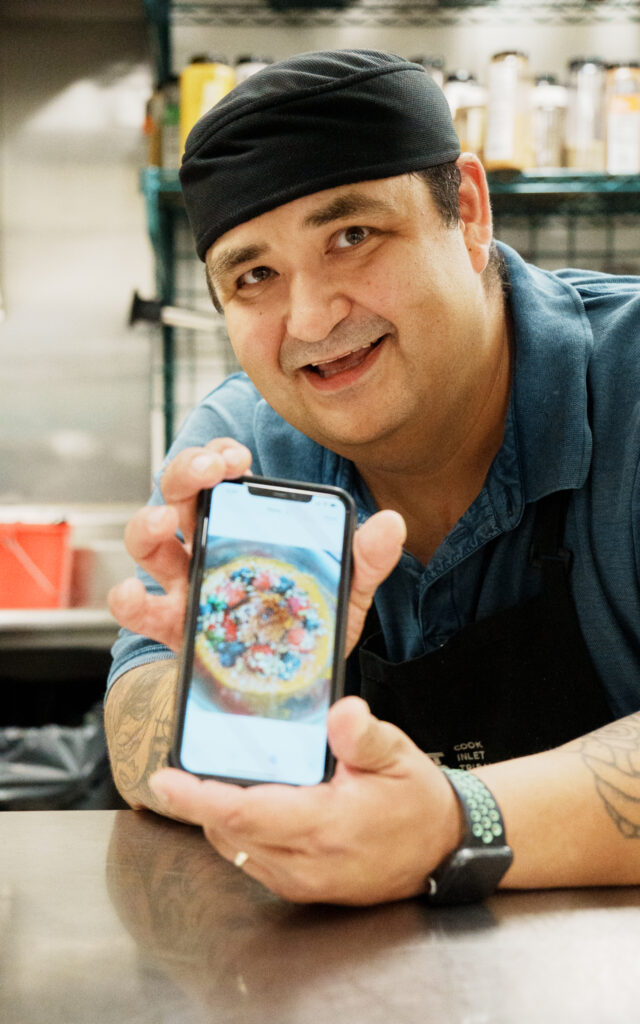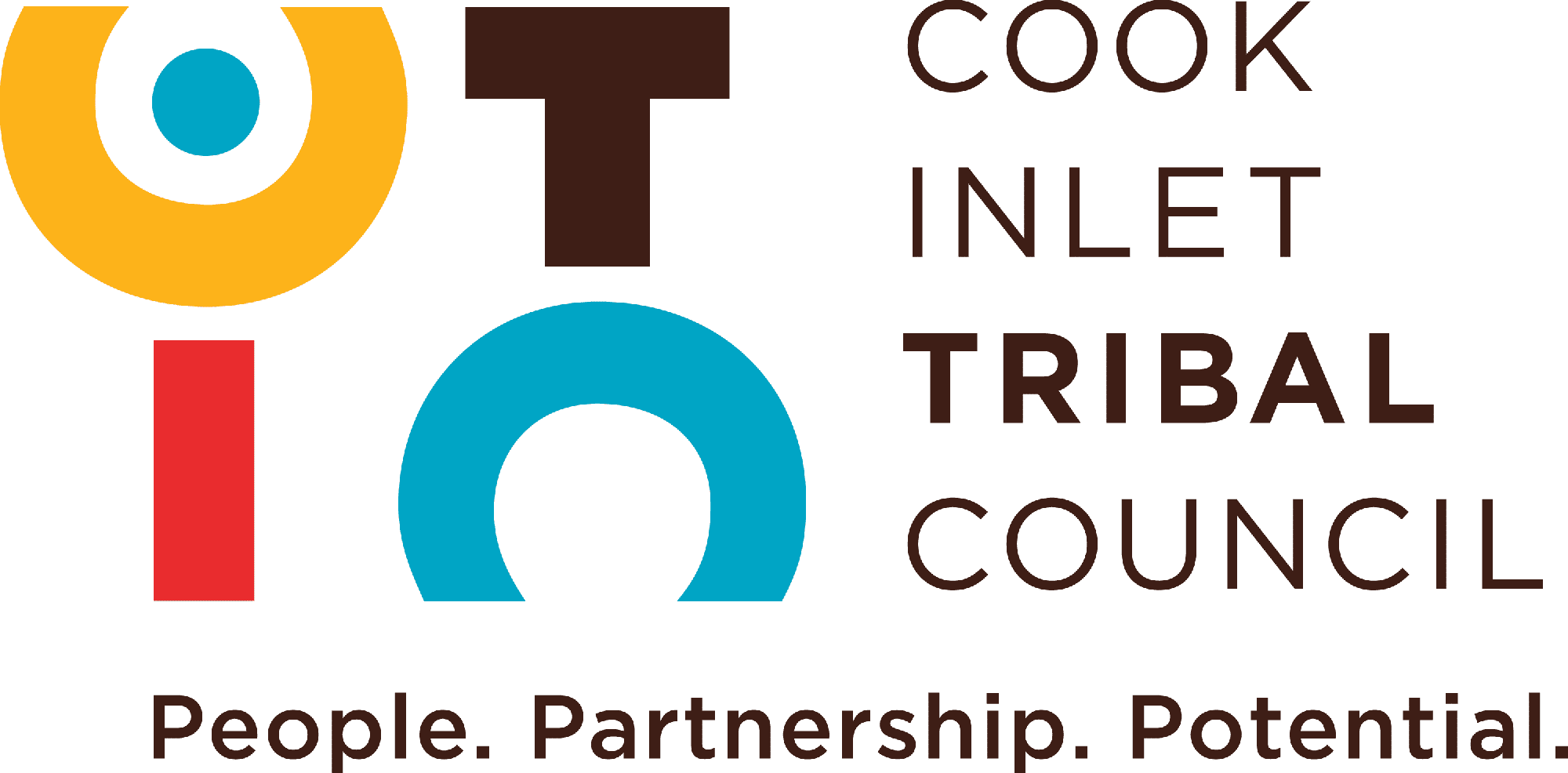28 Sep “Community Is the Opposite of Addiction”
Monthly potlucks bring together treatment facility residents as they journey toward recovery
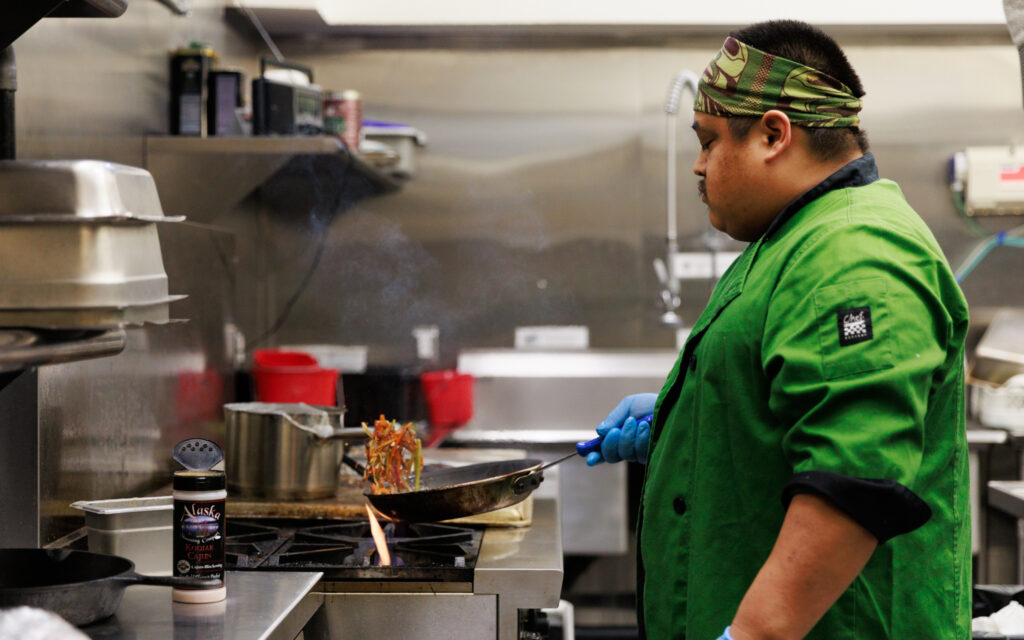
This July, Carvell Shade bustled around the kitchen at CITC’s Ernie Turner Center, checking on the fish pie cooking in the oven and giving his moose chili a quick stir. As the Ernie Turner Center’s nutrition coordinator, Carvell always has something cooking. But for the final Friday in July, he had something special on the menu.
“Fish head stew, moose chili, a salmon pie. Pickled salmon—that’s kind of a side dish thing. We eat it like a snack, back home—kind of an in-between-meals meal,” he described.
Many of the dishes Carvell was making evoked that “back home” feeling; the fish pie was a recipe from his uncle. All year, residents at the Ernie Turner Center, located in Eklutna, and CITC’s Anchorage-based Chanlyut house gather once a month for a potluck that often features themed foods from different cultures.
The shared meal is more than a culinary exploration. By gathering together, the men and women living at CITC’s two residential treatment centers are practicing ways to create healthy communities to support their sobriety.
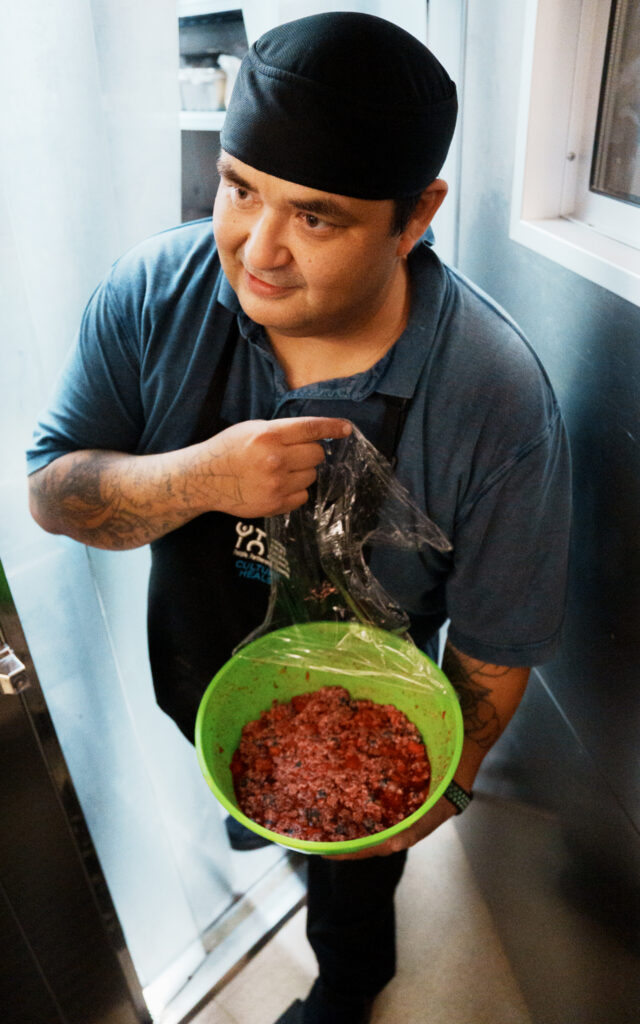
Experiencing Culture Through Food
In Anchorage, Chanlyut Nutrition Coordinator Thomas Andrade was switching things up. The squash pudding he’d planned for that afternoon’s potluck had turned into a squash brûlée with candied Apache seed mix, blue corn sugar, and fresh berries. He texted a photo to Carvell.
For each potluck, Thomas and Carvell work together to build a meal that incorporates foods from different cultures. Other times, they’ll lean more heavily on indigenous influences from their own backgrounds (Thomas is Apache, while Carvell is Yup’ik/Sugpiak) or on seasonal ingredients, like fresh salmon or hooligan.
At Chanlyut, a short-term residential treatment center that also offers job training among other supportive services, some residents work alongside Thomas, gaining on-the-job experience in a commercial kitchen setting. Often, participants will use inspiration from their own backgrounds to contribute to the potluck.
“We’ve done stuff from the Midwest, pre-colonial-type foods. We had some people from the Caribbean here, so we’ve done that,” Thomas described.
“Today, we had one of our participants make akutaq with cranberries and blueberries,” Carvell added.
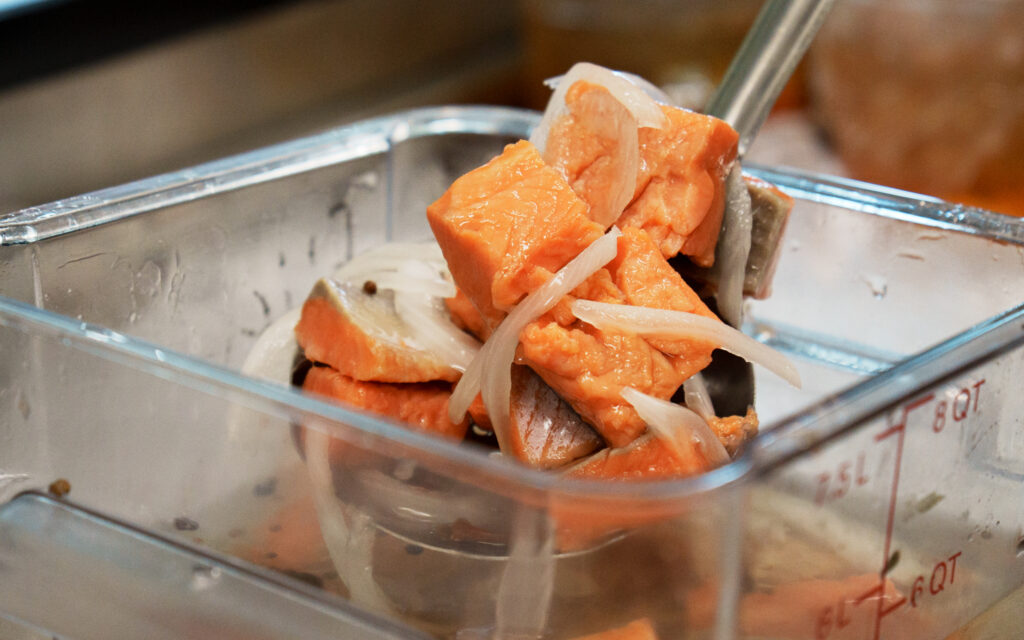
Easing the Transition
While Chanlyut provides short-term residential treatment, the average stay for a resident at the Ernie Turner Center is six months. During this time, program participants receive individual and group counseling, case management, and peer recovery support—all steeped in Alaska Native culture.
Many Ernie Turner Center residents who graduate from the program transition to Chanlyut before living independently. The potlucks, which are held at Chanlyut and Ernie Turner Center on alternating months, help ease the transition.
“It gets rid of the unknowns, so they’re not walking into something they don’t know anything about. A lot of the skills they learn here are transferable to Chanlyut’s kitchen, too. Thomas tries to get them to participate and cook. It’s been a cool collaboration,” Carvell said.
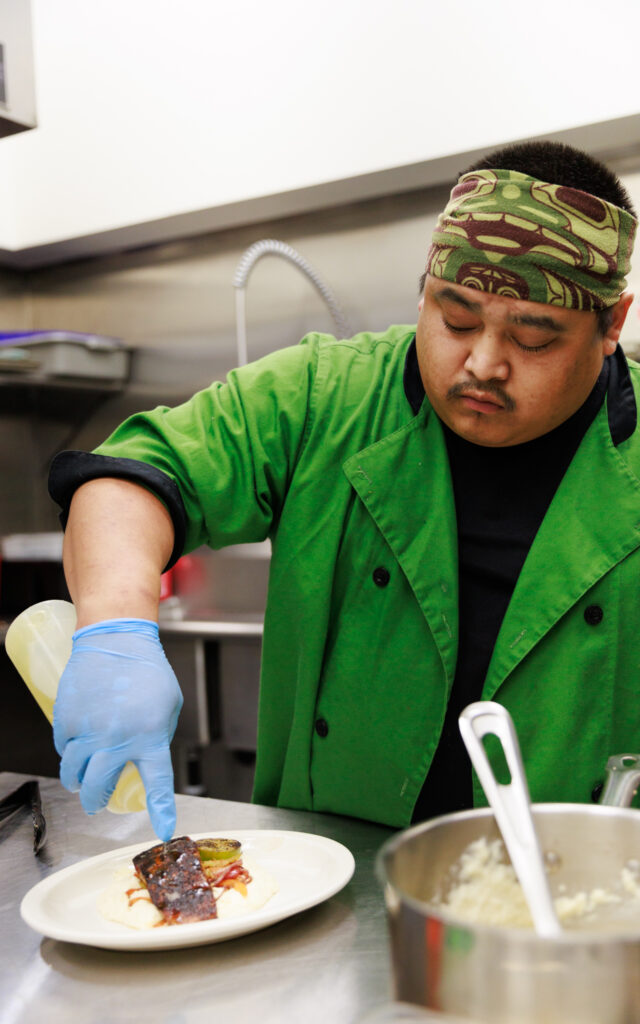
Sober Fun, Together
When Carvell gets to serve up his moose chili and fish head stew, he’s aware that for many residents, it’s often the first time they’re experiencing Alaska Native foods.
“This is an opportunity to experience a truly Alaskan dish,” he said. “I grew up on that stuff, so it’s soul food for me. I love sharing my culture through food. Sharing what we eat is creating community—and community is the opposite of addiction.”
Even though the shared meals aren’t a formal part of each resident’s recovery, the potlucks serve as an example of one way to have sober fun and build a network of support. Once individuals complete their treatment and graduate from Chanlyut or the Ernie Turner Center, they will rely on these learned skills to support their recovery outside the treatment facility.
Like many Recovery Services staff, Carvell started his journey at CITC as a program participant; he received treatment at Ernie Turner Center before becoming a CITC employee.
“I was part of the program, and that was what was done for me, when I was here. I got to see that you can be successful after drug addiction,” he explained. “Having our residents see me being successful, that it’s possible—that’s part of what these meals do.”
Learn more about residential treatment at CITC here. Need support with your recovery journey? Get in touch with our Recovery Services department.
